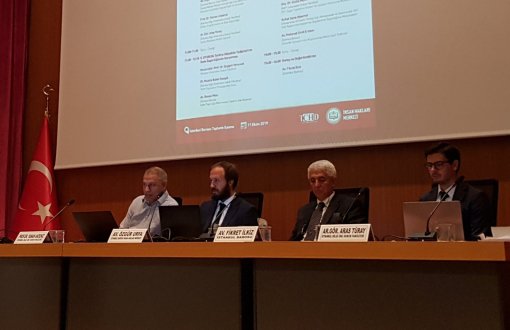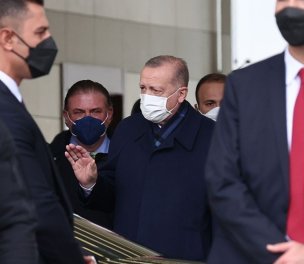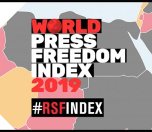Photo: Turkish Criminal Law Association / Twitter
Click to read the article in Turkish
The İstanbul Bar Association Center for Human Rights and the Turkish Criminal Law Association have held a symposium in İstanbul titled, "Actual Problems Regarding Freedom of Expression Within the Scope of Criminal Law."
Prof. Dr. Yaman Akdeniz, lawyer Özgür Urfa and Aras Tünay, a research associate at İstanbul Bilgi University gave a presentation on "social media and freedom of expression," the Mezopotamya Agency reported.
Akdeniz said that Turkey has not published statistics regarding access blocks since 2009 and the government has not responded to parliamentary questions on the matter.
'Even the Jockey Club can have websites blocked'
"We identify [the addresses] and share with the public. As of today, about 300 thousand websites and domain names are blocked," he informed.
Akdeniz said that many state institutions, including ministries and the Directorate of Religious Affairs, can have a web address blocked. "Even the Jockey Club of Turkey has the right to have access [to a web address] blocked."
"Dicle News Agency was blocked more than 40 times. Likewise, Sputnik was blocked many times. Wikipedia is still closed in Turkey," Akdeniz said, adding that he does not believe the judicial reform package will solve the problems regarding freedom of expression in Turkey.
Investigations over posts on Syria operation
Lawyer Urfa talked about investigations against social media users over their posts on Turkey's military operation in Syria: "Investigations were opened against 278 anti-war tweets. Journalists' homes were raided. They were detained."
"The judicial reform package will not solve the problem of freedom of expression," he remarked, saying that there are two articles on freedom of expression in the package.
CLICK - 11 People Detained in İzmir over Social Media Messages About Syria Operation
The first article states that posts that are within the limits of a news report will not be considered an offense, he said. According to the second article, people will be able to appeal decisions regarding the offense of "insulting the president" at the Court of Cassation.
Urfa added that lawsuits against social media users are filed either upon notices by citizens or as a result of police examinations.
"First of all, law enforcement officers do not have the authority to examine people's social media posts. These are baseless and unlawful methods of obtaining evidence.
"Virtual patrol teams, with a program developed for them, examine all posts of people who may potentially commit an offense. They examine 30 thousand people's accounts every day." (RT/VK)










